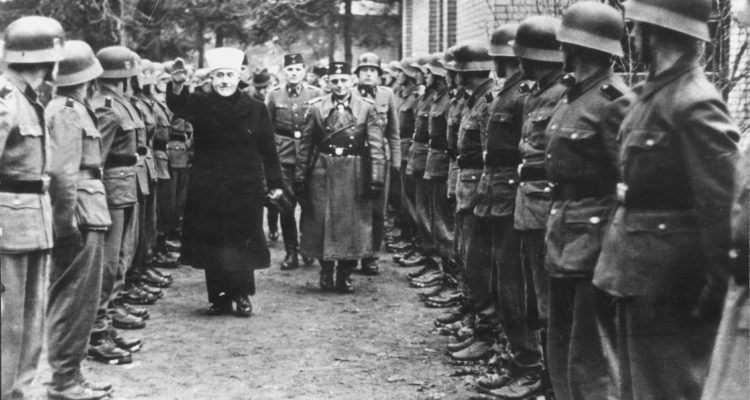“There is a beautiful poetic justice when you see the house of Hajj Amin al-Husseini crumbling down.”
By Batya Jerenberg, World Israel News
A house belonging to one of the most notorious enemies of the Jewish people in pre-state Israel is slated to become a synagogue, The Jerusalem Post reported Sunday.
Called Qasr al-Mufti (the Mufti’s Palace), it was built for Haj Amin al-Husseini in 1933, 12 years after he was appointed the Grand Mufti of Jerusalem by the British authorities, who ruled what was then Palestine.
While his job was to be the Muslim cleric in charge of the city’s Islamic holy places, the British turned a mostly blind eye to his main activity, which was fomenting deadly riots against Jews across the country.
The empty mansion is situated on a hilltop in the Arab-majority Sheikh Jarrah neighborhood, which is between the Old City and Mount Scopus. A 28-apartment complex owned by a Jewish developer has been largely built around it.
Daniel Luria, a spokesman for Ateret Cohanim, which helps Jews buy properties in the eastern part of Jerusalem but is not involved in the Mufti development, says the old house will become a synagogue and maybe a children’s day care facility to serve the expected buyers.
“There is a beautiful poetic justice when you see the house of Hajj Amin al-Husseini crumbling down,” he said.
Al-Husseini never actually lived in his grand, 500 square meter home, but his secretary’s family did and it became a social center for wealthy local Arabs and British officials, the Post reports.
The mufti finally drew the attention of the authorities when he turned his attention not only against Jews but also the British, starting a three-year-long Arab revolt against them in 1936. He had to flee the country the next year with a warrant sworn out for his arrest.
He ended up in Germany, collaborating with the Nazis by recruiting Bosnian Moslems for the Waffen-SS and regularly broadcasting propaganda for Hitler in Arabic on the radio. After the war, he fled to Egypt to escape prosecution for war crimes.
Following the War of Independence, the house became part of a hotel, but the state took over the abandoned property when Jerusalem was reunited in 1967’s Six Day War. It was eventually sold to late American billionaire Irving Moskowitz, a philanthropist and Zionist actively involved in building projects that include the Har Homa and Ma’ale HaZeitim neighborhoods.
The small new Jewish enclave is not yet on the market because the company building it has enough land to double its size. This requires rezoning the land, but its request to do so has been stuck since 2008, said the report.




